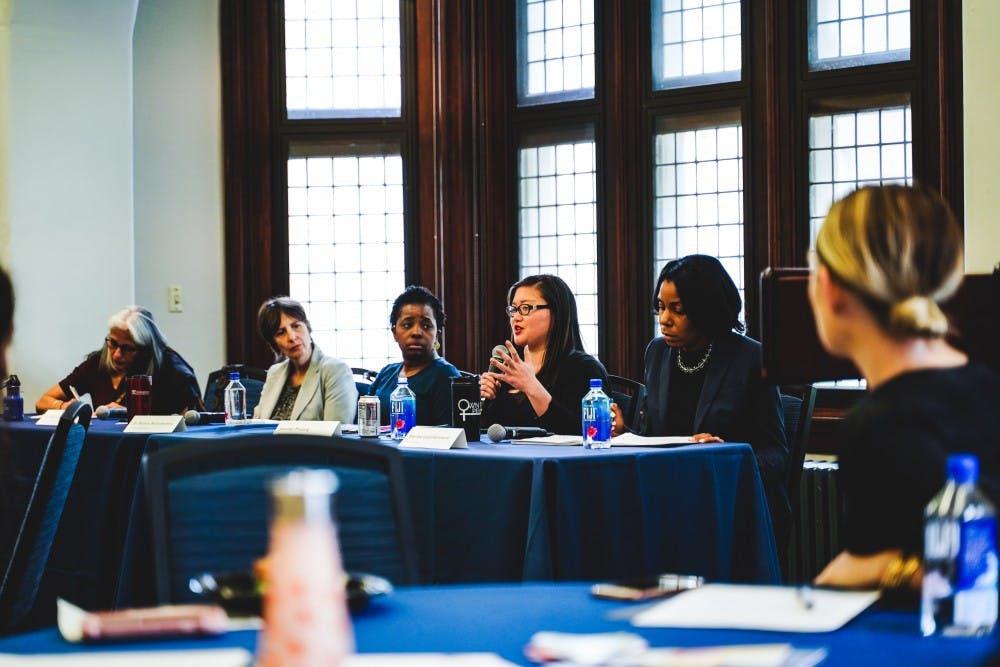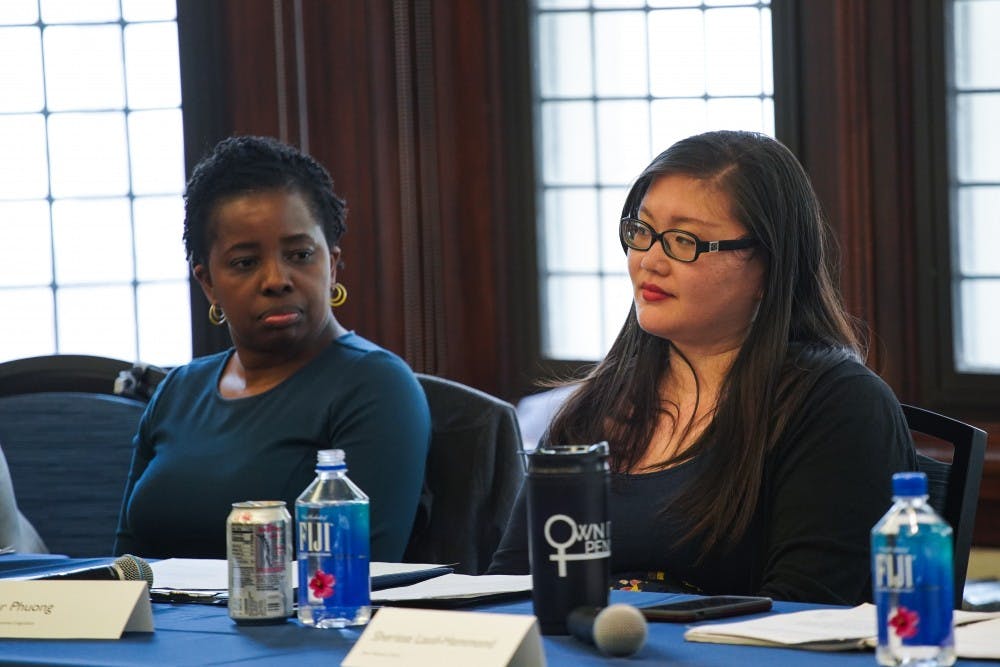
About 30 people gathered in Houston Hall to discuss sexual harassment and its impact on graduate students and faculty at Penn Tuesday night.
Credit: Eric ZengAbout 30 people gathered in Houston Hall to discuss sexual harassment and its impact on graduate students and faculty at Penn Tuesday night.
The panel, titled “#AcademiaToo: The Impact of Sexual Harassment in the Academy,” featured faculty members, a psychologist from Counseling and Psychological Services, and a Ph.D. candidate known for her activism in changing the University's sexual harassment policy. The panelists spoke about the way power dynamics contribute to the problem and how marginalized communities are more likely to experience harassment. The Graduate and Professional Student Assembly's Sexual Harassment Reform Committee hosted the event.
Alicia Chatterjee, a first-year doctoral candidate for social welfare at the School of Social Policy & Practice, said graduate students are particularly vulnerable to sexual harassment because they receive low incomes that are tied to their work with an advisor.
“Research as well as personal experience has definitely shown that really strong and rigid hierarchies that are very present in the academy are directly linked to abuses of power,” Chatterjee said. “That is definitely something we wanted to take the cover off of and look more carefully at.”
In September 2017, the Graduate Employees Together-University of Pennsylvania, which attempted to unionize Penn graduate students, published a petition calling for improved procedures for reporting sexual harassment for students in the Graduate School of Education.

CAPS Psychologist Batsirai Bvunzawabay (left) with GSE Ph.D. candidate Jennifer Phuong (right).
Women’s Center Director Sherisse Laud-Hammond, who moderated the panel, said the tenure process for professors relies on support from tenured faculty. Laud-Hammond said this means professors could be ostracized for coming forward with sexual harassment allegations against their superiors.
Associate dean for Undergraduate Studies at the Annenberg School for Communication Litty Paxton spoke about the case of David Marchant, a geology professor at Boston University who was found responsible by the university in November 2017 for harassing a former Penn assistant professor in Earth and Environmental Science while on a research trip in Antarctica.
The accuser, Jane Willenbring, was a graduate student at Boston University at the time of the harassment and waited until she was tenured to file a complaint because she feared retaliation from Marchant would negatively affect her career.
CAPS psychologist Batsirai Bvunzawabaya said it is often difficult for students who have experienced sexual harassment to come forward. She said mental health conditions such as anxiety and depression can be caused or worsened because of harassment.
Bvunzawabaya also said there is still shame and victim-blaming that can be intensified in the confined space of a university. GSE Ph.D. candidate Jennifer Phuong, who authored the GET-UP petition, echoed how these fears of stigmatization are amplified by the small communities doctoral candidates live in, and she said the decentralization at Penn makes it hard for students across schools to combat sexual harassment.
Panelists also noted that people in marginalized communities are more likely to be affected by sexual harassment.
Phuong said there is an increased ambiguity for marginalized students who are often unsure if something is considered sexual harassment and unfamiliar with the process for reporting it. She gave the example of international students who may not know the reporting process and may be worried it could affect their visa statuses.
“This is an issue that I care about a lot as a graduate student in higher education, and who is thinking a lot about higher education,” said Alice Wang, a second-year student in GSE and SP2. “Sexual harassment is about power, so power dynamics play a huge role in that.”
The Daily Pennsylvanian is an independent, student-run newspaper. Please consider making a donation to support the coverage that shapes the University. Your generosity ensures a future of strong journalism at Penn.
Donate







